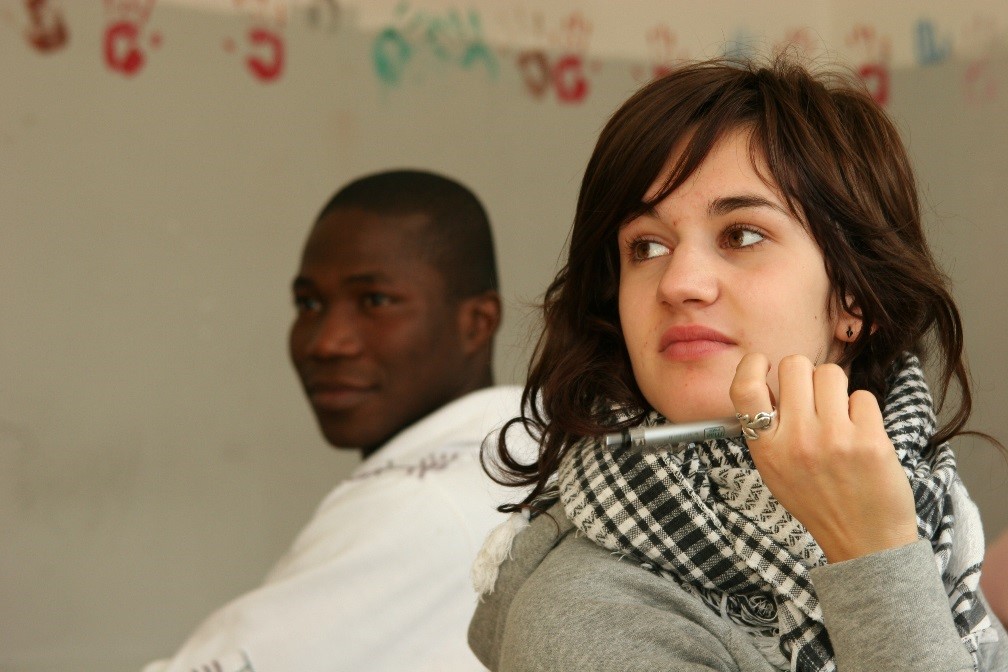A woman is killed every three days in Italy. This shocking phenomenon is called femicide – when a woman is killed by a man because she is a woman.
Why we care: Insecurity is growing amongst women as the phenomenon has no boundaries, and most worryingly, in 7 out of 10 cases the murderer is a man she knows well.
How we’re solving this: Providing quality and effective gender sensitive education by training teachers and empowering students to make a positive change in society.
Unfortunately femicide is only the tip of the iceberg as its structural causes lie deeper, in the cultural and educational mindsets of grown-ups and young people, in the way boys and girls are educated and in the way they are able to develop their own critical thought on how images of women (and men) are conveyed in Italian society.
To overcome this horrific plague, action is needed.
This is why Oxfam Italy wants to invest in increasing the quality and the effectiveness of gender education in secondary schools (11-18 year olds) in Italy. This project will support Italian schools in becoming the place where boys and girls learn to respect each other and be able to develop relationships based on mutual respect.
The focus to increase gender-sensitive education, and emotional education in Italy within secondary schools will be carried out by increasing the capacities of Italian teachers to deliver this education and by bringing transformational, experiential change through participatory activities which directly involve young people.
The program will involve an education expert who will conceive and disseminate teaching and learning resources and inputs to a global learning community of secondary school teachers in Italy.
7 participatory workshops will be carried out in secondary schools which will allow approx 200 students and their teachers to understand better the causes of femicide. These workshops will also and above all empower students to critically analyze and constructively propose actions that support positive gender education in schools.
The workshops adapt The Future Workshop methodology, which is a participatory methodology based on listening, critical analysis, democratic dialogue and active citizenship. This method includes three phases: 0) participants’ preparation, 1) criticism, 2) imagination, 3) presentation of the proposal and feasibility analysis. The combined duration of the first two phases is 10 hours.
Teachers will be provided with introductory teaching materials prior to the workshops (approx 4 hours worth of teaching activities) and will also foresee a final seminar which lasts an entire day.
The seminar will allow young people to present their proposals to decision makers who will commit to helping these young citizens make a positive change in their societies. In total, the program will be delivered, in collaboration with teachers, over a 4 month period at a minimum, although it will be strongly urged that the teachers work on these important issues throughout the school year.


